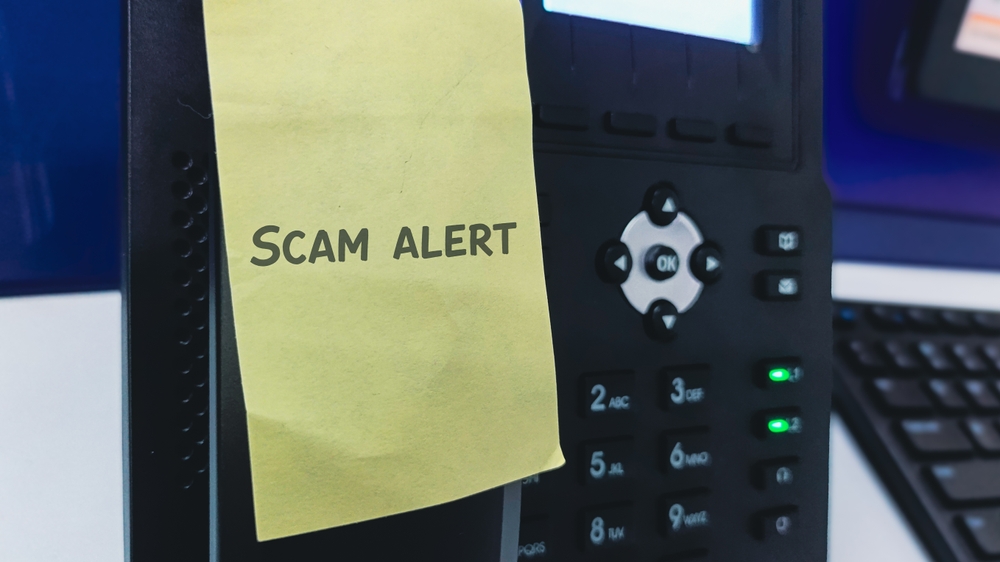Written on Aug 29, 2025.
Voice over Internet Protocol, commonly known as VoIP, has revolutionized the way people and businesses communicate. By transmitting voice data over the internet instead of traditional phone lines, VoIP provides more flexibility, lower costs, and advanced features. However, with these advantages comes an important question that both businesses and individuals often ask: how secure is VoIP? Since the technology relies on internet connectivity, its security depends on several factors, including the provider's safeguards, the network infrastructure, and how users themselves manage their systems.
VoIP security is a critical concern because digital communication can be vulnerable to the same threats that affect other online activities. Hackers may attempt to intercept calls, steal account credentials, or exploit weaknesses in a company's network. Unlike analog landlines that are relatively isolated, VoIP traffic moves through data networks, which means it can be subject to eavesdropping, denial of service attacks, phishing attempts, or even toll fraud where unauthorized users make calls through another party's system. These risks highlight why it is essential to understand how secure VoIP truly is and what measures can be taken to protect it.

At its core, the security of a VoIP system largely depends on the encryption protocols and authentication methods implemented by the service provider. Many reputable VoIP providers use encryption to scramble voice data so that even if it were intercepted, it would be nearly impossible to understand without the proper decryption key. Strong authentication ensures that only authorized users can access the system, reducing the risk of account hijacking. As long as providers employ industry standard encryption and authentication, VoIP calls can be just as secure as other forms of online communication like emails or messaging apps.
The network environment in which VoIP operates also plays a significant role in determining security. A poorly managed or unsecured Wi Fi connection, for instance, can leave VoIP calls exposed to outside interference. Firewalls, intrusion detection systems, and secure routers all contribute to creating a protective barrier for VoIP traffic. Organizations that invest in maintaining a strong network infrastructure generally experience far fewer security issues. In this way, VoIP is only as secure as the systems supporting it, meaning users must consider the health of their overall IT environment rather than just the phone service itself.
Another important aspect of VoIP security lies in how user credentials and devices are handled. Weak passwords, outdated software, or unpatched phones and applications create vulnerabilities that hackers can exploit. Just as with any internet based service, the human factor plays a major role in determining security outcomes. Training employees to recognize phishing attempts, enforcing strong password policies, and keeping devices updated all strengthen VoIP security. Without these practices, even the most advanced provider side protections can be undermined.
For businesses, regulatory compliance often shapes VoIP security requirements. Companies in industries such as healthcare, finance, or law must ensure their communications adhere to strict privacy regulations. This usually means selecting a VoIP provider that can guarantee compliance through robust encryption, secure storage of call records, and monitoring tools that track system access. When businesses choose providers with compliance certifications, they significantly reduce their exposure to legal and financial risks associated with communication breaches.
It is also worth considering that VoIP security has improved dramatically over the years. In the early days, vulnerabilities were more common because the technology was relatively new and providers had limited protections in place. Today, however, VoIP has matured into a mainstream communication system, and providers are highly aware of the security challenges. Most leading services now include built in protections against common threats like denial of service attacks, call interception, and fraud. As a result, VoIP security has reached a level where it can rival or even surpass that of legacy phone systems, provided it is implemented correctly.
That being said, no technology is completely immune from risks, and VoIP is no exception. The key to maintaining secure communication lies in ongoing vigilance. Organizations should regularly review their security policies, monitor call activity for unusual patterns, and work with providers who actively update their systems in response to new threats. Individuals should also be mindful of where and how they use VoIP, avoiding unsecured public Wi Fi networks and ensuring their devices have the latest security updates. By treating VoIP as part of a broader cybersecurity strategy, rather than an isolated service, users can minimize the risk of compromise.
In conclusion, VoIP is secure when the right measures are in place, but like any internet based service, it requires attention and management to remain safe. Encryption, strong authentication, and secure networks form the foundation of VoIP protection, while user behavior and provider reliability determine its real world effectiveness. Businesses and individuals alike should recognize that VoIP security is not a single feature but a combination of practices, technology, and awareness. With proper implementation, VoIP can provide not only the flexibility and cost savings it is known for but also the confidence that communications remain private and protected.
We support all telecommunication services and needs. Remember to keep Bulk Solutions in mind for your telecommunication needs since we value Quality and Reliability above everything else.